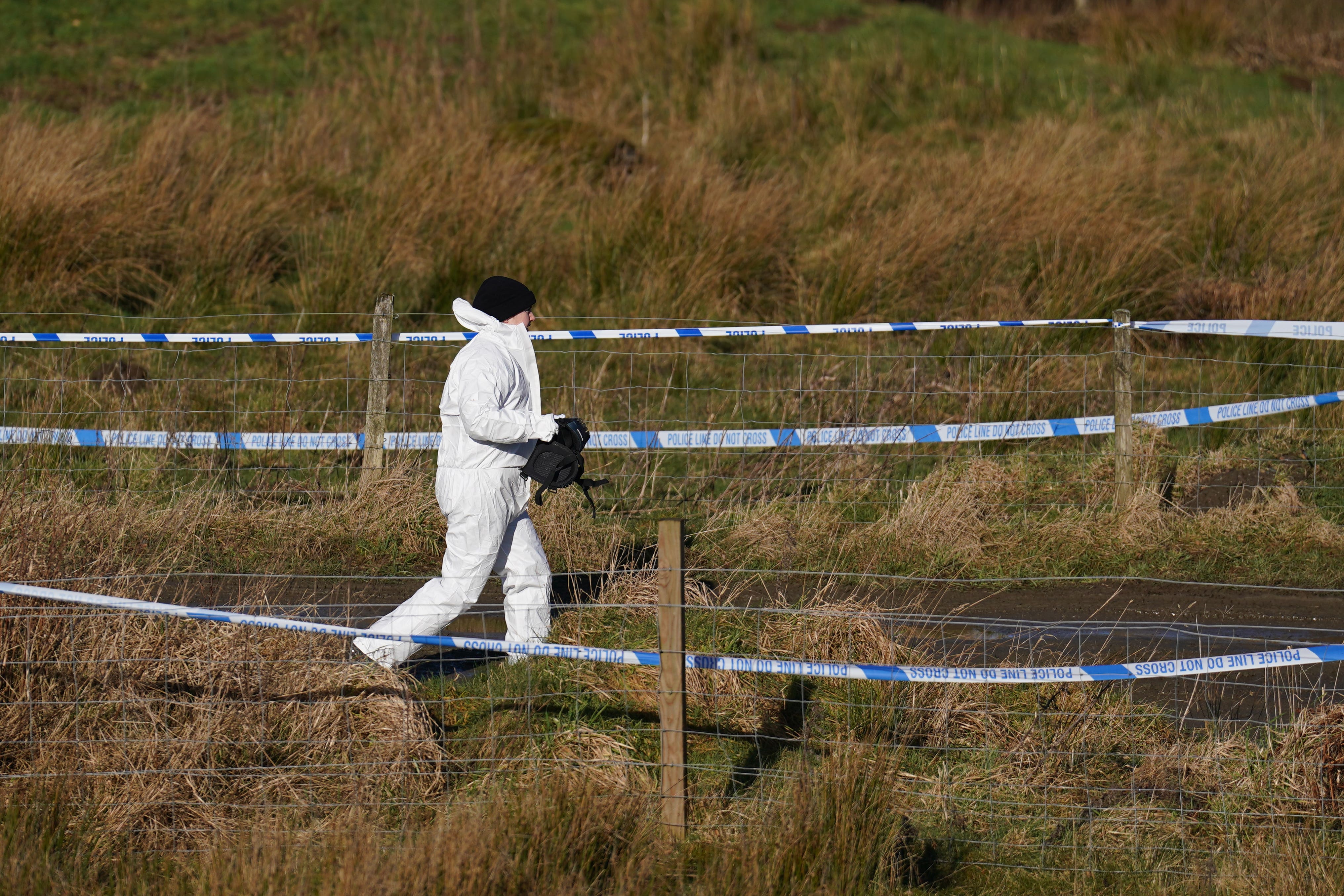Delay in opening murder investigation may have led to loss of evidence – police
Brian Low, 65, was found dead on a rural path on February 17 in Pitilie, near Aberfeldy, Perth and Kinross.

Evidence may have been lost during the delay in treating a gunshot victim’s death as murder, Police Scotland have said.
Brian Low, 65, was found dead on a rural path on February 17, in Pitilie, near Aberfeldy, Perthshire and Kinross.
His death was initially treated as “medical or non-suspicious”, according to Police Scotland officers who held a press conference in Perth on Thursday.
Mr Low was found dead with his black Labrador at about 8.30am by a member of the public, and the remote beauty spot was not treated as a crime scene until four days later.
Concerns around the wound Mr Low had suffered were raised on Wednesday February 21, during an initial medical examination and the major investigation team was called in, it was revealed.
However, two days later, two doctors carried out a post-mortem examination which established that it was “a fatal gunshot”, and Mr Low’s family were told of the news on Saturday afternoon.
The public were not told of a gunman on the loose until Tuesday February 27 – 10 days after Mr Low’s body was found.
Detectives admitted evidence may have been lost in the delay in setting up a crime scene.
No motive has been established and officers said the death was not being treated as a hunting accident or a suicide, and house-to-house inquiries were being carried out.
Detective Chief Inspector Martin Macdougall said “criminality was established (on) Friday evening”, but there were “concerns around the injury” two days earlier.
He said: “Obviously, once it had been established on Wednesday there were concerns about the death, the scene was established at that stage.
“But, yes, I appreciate that in that time frame between the Saturday and Wednesday some things could have been lost, but we have taken every opportunity since to recover every item from that area.”
Police Scotland’s Professional Standards department had been informed, it was said.
Mr Macdougall added: “The initial assessment was that of a non-suspicious and medical death, and has now been established to be a murder.
“The Professional Standards department of Police Scotland will be informed and given any further information.”
He said detectives were “keeping a very open mind as to the motive”, and officers defended the initial response to the inquiry.
They refused to reveal the kind of gun used to kill the former estate groundsman, or to say where the gunshot wound was sustained.
Chief Inspector Greg Burns said: “From the initial assessment at the locus, the death was deemed to be medical or non suspicious. That would give you an idea of how the body presented.”
Mr Macdougall added: “We’ve got keep an open mind as to why Brian was subjected to this crime. We can’t just decide that it’s targeted or non-targeted.
“Inquiries are ongoing, but there’s nothing to indicate that Brian is involved in any form of criminality and he’s not adversely known to the police.
“We’re not going to provide any information at this stage on the type of weapon or type of wound that Brian sustained.”
He said Mr Low’s previous employment at the Edradynate Estate would be looked at during the investigation.
Mr Macdougall said: “Every aspect of Brian’s life will be explored, any people he associates with, that includes employment.”
He added: “We need to focus on appealing for witnesses to try and assist us and give Brian’s family the answers as to why he’s been murdered.”
First Minister Humza Yousaf said police were working “around the clock” to solve the case.
Speaking in Holyrood on Thursday, Mr Yousaf said: “Can I give as much assurance to the community of Aberfeldy, who are rightly shocked, rocked in fact by this tragic incident.”
He added: “I know that Police Scotland has been taking this case extremely seriously.
“There are questions I know that have been asked given media reports in the last 24-48 hours in terms of the time taken between Mr Low’s death and the post-mortem and the opening of the murder investigation.
“I’ve been absolutely assured, and I sought these assurances, that Police Scotland are working around the clock into this murder investigation and will be seeking to reassure the community as they can.”
The comments were prompted by a question from local MSP, and former deputy first minister, John Swinney, who spoke of the “deep unease” in the area following the Mr Low’s death.
Mr Swinney also pushed for the necessary police presence “to assure the community I represent of its safety”.
The First Minister described the suggestion as “sensible”, adding that he would pass on the suggestion to Police Scotland.
Bookmark popover
Removed from bookmarks